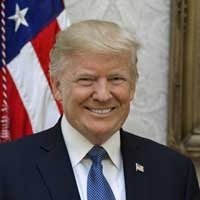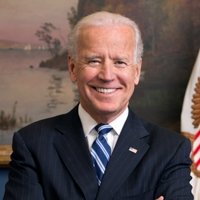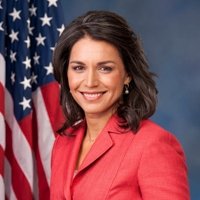Big Tech in 2020: Privacy
How the Presidential Candidate Approach Privacy
Recent scandals, including Cambridge Analytica and widespread data breaches involving social media platforms, have raised questions about social media companies’ responsibility to protect their users’ personal information. What should the Federal Government's role be in protecting user privacy online?
Republican Candidates

President Donald Trump
President Trump signed a bill that repealed Obama-era internet privacy rules designed to give users more control over their "sensitive" data. The White House publicly stated that it is using "the White House National Economic Council...to craft a consumer privacy protection policy that is the appropriate balance between privacy and prosperity." The Department of Commerce has consulted large tech and media companies to create a framework for internet user’s rights, data protection, and how companies should collect consumer information.
No known position: Former Governor Bill Weld
Democratic Candidates

Former Vice President Joe Biden
Biden has not publicly declared a position on online privacy, but during his tenure as Vice President, the Obama administration introduced the "Consumer Privacy Bill of Rights," which aimed to "give users more control over how their personal information is used on the Internet."

Representative Tulsi Gabbard
Rep. Gabbard is a founding member of the Fourth Amendment Caucus, which has focused on "strengthening privacy and civil liberties protections in the digital age." Gabbard also introduced "legislation to strengthen the Privacy and Civil Liberties Oversight Board (PCLOB)," as well as "cosponsored legislation like the Electronic Communications Privacy Amendments Act and Email Privacy Act to modernize electronic privacy laws."